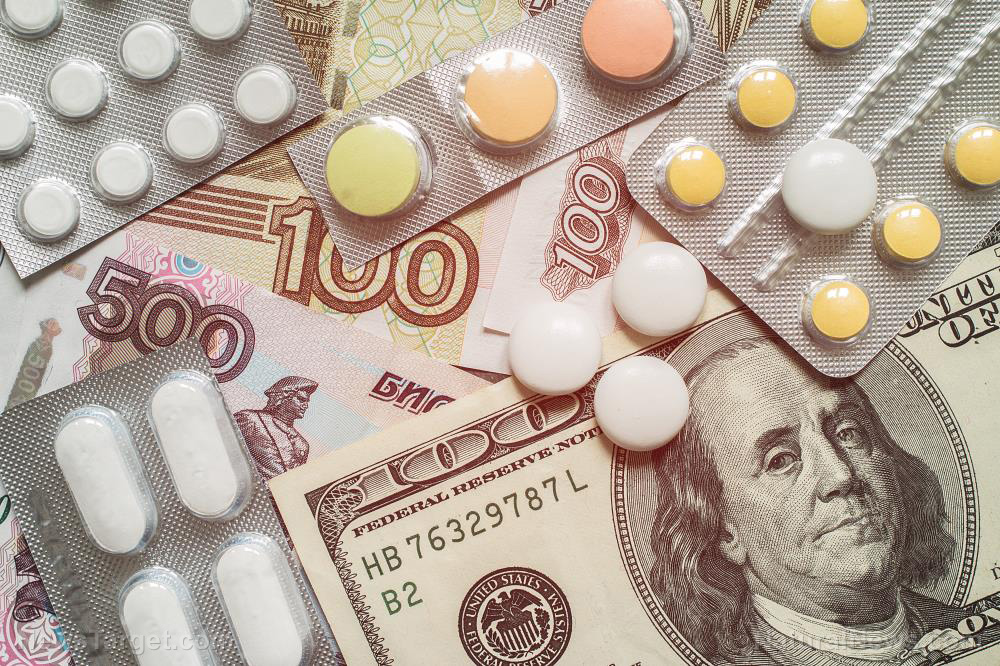 Parler
Parler Gab
Gab
- The Trump administration announced a voluntary deal with Eli Lilly and Novo Nordisk to significantly lower prices for popular weight-loss and diabetes drugs.
- Under the "TrumpRx" program, monthly costs for drugs like Wegovy and Zepbound will drop from over $1,000 to approximately $350 for cash-paying customers.
- The agreement enables Medicare, for the first time, to cover these drugs for obesity and related conditions, with beneficiaries paying a copay of $50 or less.
- The deal is framed as a move to end "global freeloading" by aligning U.S. drug prices more closely with those in other developed nations.
- The arrangement also secures major new U.S. manufacturing investments from the pharmaceutical companies.
The anatomy of the deal
The agreement, forged with pharmaceutical giants Eli Lilly and Novo Nordisk, centers on the concept of "Most-Favored-Nation" pricing, an effort to bring U.S. drug costs in line with those paid by other developed countries. The immediate financial impact for consumers is substantial. Through a new government platform called TrumpRx, the monthly price of Novo Nordisk’s Wegovy will fall from $1,350 to $350, while Eli Lilly’s Zepbound will drop from $1,086 to an average of $346. The arrangement also covers other medications, including insulins from both companies, which will be available for $35 per month. For the manufacturers, the deal includes temporary relief from pharmaceutical tariffs and a commitment from the government to promote their products.Breaking the Medicare barrier
Perhaps the most consequential element of the agreement is the pathway it creates for Medicare to cover anti-obesity medications for the first time. A long-standing statutory prohibition has prevented Medicare Part D from paying for drugs used solely for weight loss. The Trump administration’s deal circumvents this by leveraging the drugs’ approved uses for related conditions like heart disease and diabetes. Under the new framework, Medicare will pay $245 per month for these drugs, and beneficiaries who qualify based on weight and comorbidities will pay a copay of no more than $50. The administration estimates approximately 10 percent of Medicare enrollees will be eligible, marking a historic shift in the program’s approach to treating obesity as a chronic disease.The "America First" prescription policy
The deal is presented by the White House not merely as a price reduction but as a fundamental rebalancing of global pharmaceutical economics. Administration officials argue that the United States, with less than five percent of the world's population, has been responsible for roughly 75 percent of global pharmaceutical profits, effectively forcing American consumers to shoulder the cost of research and development while other wealthy nations benefit from negotiated discounts. This agreement, part of a series of similar pacts with other drugmakers, is touted as a key deliverable on President Trump’s promise to end what he has termed "global freeloading" on American innovation. In tandem with the price cuts, both companies announced massive new investments in U.S. manufacturing capacity, reinforcing the policy's domestic economic benefits.A contrasting vision from the predecessor
This announcement carries significant political weight, arriving as a direct counterpoint to a proposal from the outgoing Biden administration. In late November 2024, the Biden team had sought to expand access to the same class of drugs by reclassifying them for coverage under existing rules for obesity-related conditions. The Trump administration's approach, however, has explicitly rejected that framework, opting instead for a voluntary agreement that it claims will achieve lower prices for taxpayers. The move highlights a philosophical divergence in governing: one strategy relying on regulatory reclassification within the existing healthcare system, and the other on direct negotiation with industry, framed as a pro-market alternative to government price-setting.A new chapter in drug affordability
While the deal promises greater affordability and access, several practical questions remain unresolved. Health policy experts have noted that a monthly cost of $350 is still prohibitively expensive for many uninsured Americans, and the specifics of the Medicare pilot program are not yet fully detailed. Furthermore, the long-term fiscal impact on Medicare itself, given the potential for widespread usage of these high-demand drugs, is a subject of ongoing analysis. Nevertheless, the agreement undeniably marks a watershed moment. It signals a growing political consensus on the need to address skyrocketing drug costs and legitimizes pharmacological intervention for obesity within the nation's largest health program, setting a new precedent for how the U.S. government can leverage its purchasing power to reshape the pharmaceutical market. Sources for this article include: TheEpochTimes.com WhiteHouse.gov NBCnews.comU.S. designates four European Antifa-linked groups as foreign terrorist organizations
By Patrick Lewis // Share
The lunchtime prescription: A 10-minute walk could be the key to beating winter’s ills
By Ava Grace // Share
Study reveals five distinct sleep profiles, each affecting brain and health differently
By Patrick Lewis // Share
A movement stalled? Allegations of internal sabotage plague Kennedy’s HHS agenda
By Willow Tohi // Share
Governments continue to obscure COVID-19 vaccine data amid rising concerns over excess deaths
By patricklewis // Share
Tech giant Microsoft backs EXTINCTION with its support of carbon capture programs
By ramontomeydw // Share
Germany to resume arms exports to Israel despite repeated ceasefire violations
By isabelle // Share










